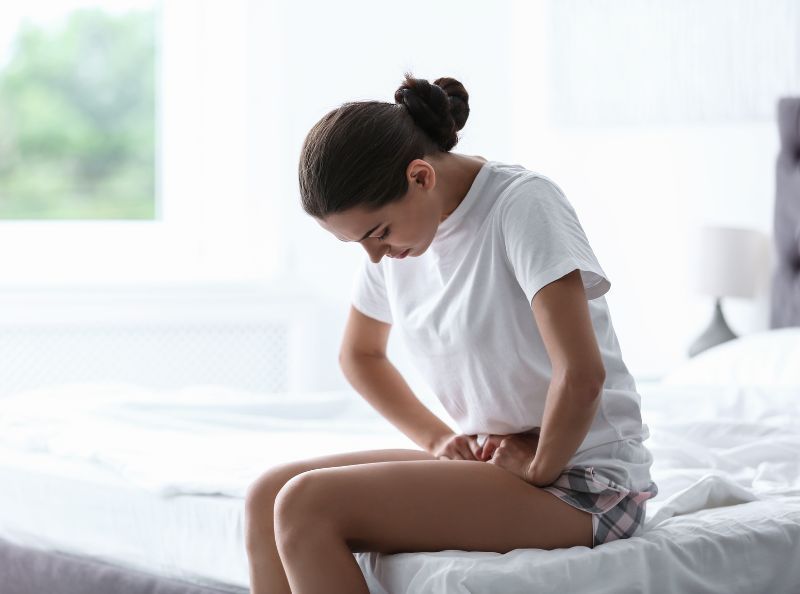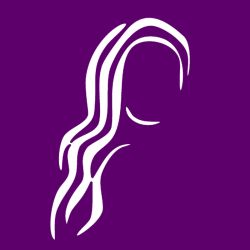When Should I Be Concerned About Nausea During My Period?

Menstruating can be a difficult time of the month for many women, especially if you experience painful symptoms. Nausea is one of these symptoms and is often passed off as a typical, common irritation of PMS. It can, however, be a cause for concern.
Nausea during menstruation, in some cases, may indicate a more serious issue, particularly when accompanied by other symptoms. If you suffer from severe nausea during your period, accompanied by other serious symptoms, it is best to reach out to the healthcare providers at Tidewater Physicians for Women to check on your health.
Why Do You Feel Nauseous During Your Period?
Many women experience nausea during menstruation. This is common and can be due to hormonal changes during the menstrual cycle. Many women experience additional symptoms such as menstrual cramps, headaches, and other symptoms that can make the nausea even worse. The body also releases chemicals called prostaglandins during this time that can create these hormonal changes, and some women are more sensitive than others.
What Are Common Causes of Nausea When You Are Menstruating?
Many causes of nausea during your period are due to hormonal changes. Some are more serious than others, and some women experience them with greater intensity than others.
Dysmenorrhea
Dysmenorrhea is a technical term for extremely painful menstrual cramps. This is the most common cause of menstrual nausea. It can present as a primary or secondary condition. Primary dysmenorrhea is the result of uterine contractions caused by increased prostaglandins. Secondary dysmenorrhea is the result of another condition.
Premenstrual Syndrome (PMS)
Most women know what PMS is; its symptoms typically present a week or two before your period and disappear a few days after. It can result in cramps, nausea, diarrhea, bloating, headaches, back pain, tender breasts, constipation, and mood swings.
Premenstrual Dysphoric Disorder (PMDD)
Premenstrual dysphoric disorder, or PMDD, is the name for severe PMS that disrupts your daily life. It is related to hormonal symptoms but can lead to reduced serotonin levels, which causes intense emotional symptoms. Besides typical PMS symptoms, PMDD can cause panic attacks, difficulty focusing on tasks, serious fatigue, irritability, and even paranoia. PMDD only affects about 5% of women.
Endometriosis
After ovulation, your uterus sheds its endometrium, or the tissue lining your uterus. This is what happens during typical menstruation. For some women, however, this lining tissue grows outside the uterus. This is a condition called endometriosis. It affects the fallopian tubes, ovaries, and other tissues surrounding the uterus. Because it cannot be properly shed from the uterus, the tissue causes pain and irritation. It can also cause vomiting, fatigue, diarrhea, pain during sex, bloating, painful urination or bowel movements, heavy bleeding even between periods, and infertility.
Pelvic Inflammatory Disease (PID)
Pelvic inflammatory disease, or PID, is an upper reproductive tract infection. It often happens due to a sexually transmitted infection (STI) that spreads inside the body. The most common STIs responsible for PID are chlamydia and gonorrhea. PID can also be caused by bacteria that enter following childbirth.
Not all women have symptoms of PID. Those who do might experience abdominal or pelvic pain, irregular periods, abnormal vaginal discharge, pain during sex, or painful urination. If you experience nausea, vomiting, fever, or chills, you may have a severe case requiring medical attention.
When is It Time to Call a Healthcare Provider?
PMS is normal and can usually be managed with over-the-counter solutions. If, however, you continuously experience severe nausea combined with vomiting, you cannot retain fluid, and your symptoms progressively worsen, it is time to seek medical advice from your gynecologist, primary care physician, or other healthcare provider.
Ways to Manage Feeling Nauseous While on Your Period
Many remedies exist for PMS and menstrual nausea. You may start with heating pads or cool compresses, and be sure you are drinking enough fluids. Certain medications, such as nonsteroidal anti-inflammatory drugs (NSAIDs) like ibuprofen and naproxen, have been known to help.
Selective serotonin reuptake inhibitors, or SSRIs, are a class of antidepressants that can increase serotonin in the brain. These can also be helpful in treating PMS and PMDD. They are mostly indicated, however, for the treatment of emotional symptoms, and some SSRIs have side effects that include nausea.
Finally, home remedies exist that have anecdotal effectiveness for relieving nausea. These include ginger tea, fresh air, peppermint, cinnamon, and fennel, which can be taken as dietary supplements. Some say that acupressure applied to the inner wrist at the Nei Guan, or P6, pressure point may help with nausea.
Few of these home remedies, however, have a great deal of peer-reviewed evidence behind them. It is always a good idea to speak with medical professionals before trying any home remedy.
Is There a Way to Prevent Nausea During Your Period?
It is not always possible to prevent nausea during your period. There are, however, ways to help by improving your diet in general. The BRAT (banana, rice, applesauce, and toast) diet is said to be easy on the digestive tract and may help to ease nausea, but it is a short-term fix. While these foods are gentle on the stomach, they are high in carbohydrates and not nutritionally dense.
For some women, oral contraceptives (birth control pills) can help regulate hormones during your menstrual cycle. They can help relieve both the physical and emotional symptoms of PMS and PMDD and can be prescribed by your healthcare provider as a preventative measure if you suffer from severe menstrual periods.
If you do suffer serious nausea during your period, especially when it is combined with other symptoms that interfere with your daily life, you should contact a healthcare professional. Your symptoms could indicate a more serious underlying problem.
Our Team Can Help Get Period Symptoms Under Control
Tidewater Physicians for Women provides all-inclusive obstetrics and gynecology services to women across the Virginia Beach region, from birth control to pregnancy tests, diagnosis and treatment of gynecological disorders, gynecological surgery, annual preventative care, and women’s health treatments for all ages from adolescence through menopause.
We accept the majority of indemnity, PPO, and HMO plans offered in the Hampton Roads area including Anthem, Aetna, Cigna, Optima, UnitedHealthcare, Virginia Health Network, and others. We seek to take comprehensive care to a higher level, and our experienced team of qualified physicians, nurse practitioners, and licensed counselors offers family planning, well-woman exams, preconception counseling, and help with all of the physical and mental health challenges women face every day.
If you are concerned about menstrual nausea you experience during your period, we may be able to help. From determining whether your nausea is part of typical PMS or is due to an underlying condition and treating any conditions, we are here to help you get healthy once more. Give us a call today at 757-461-3890 to make an appointment.

Written By Tidewater Physicians For Women


828 Healthy Way Unit 330
Virginia Beach, VA 23462
Fax: 757-467-0301
844 Kempsville Road #208
Norfolk, VA 23502
Fax: 757-461-0836
Appointments:
757-461-3890
Inquiries:
757-461-3890
Notice of Privacy Practices
Notice of Financial Policies

© Tidewater Physicians for Women